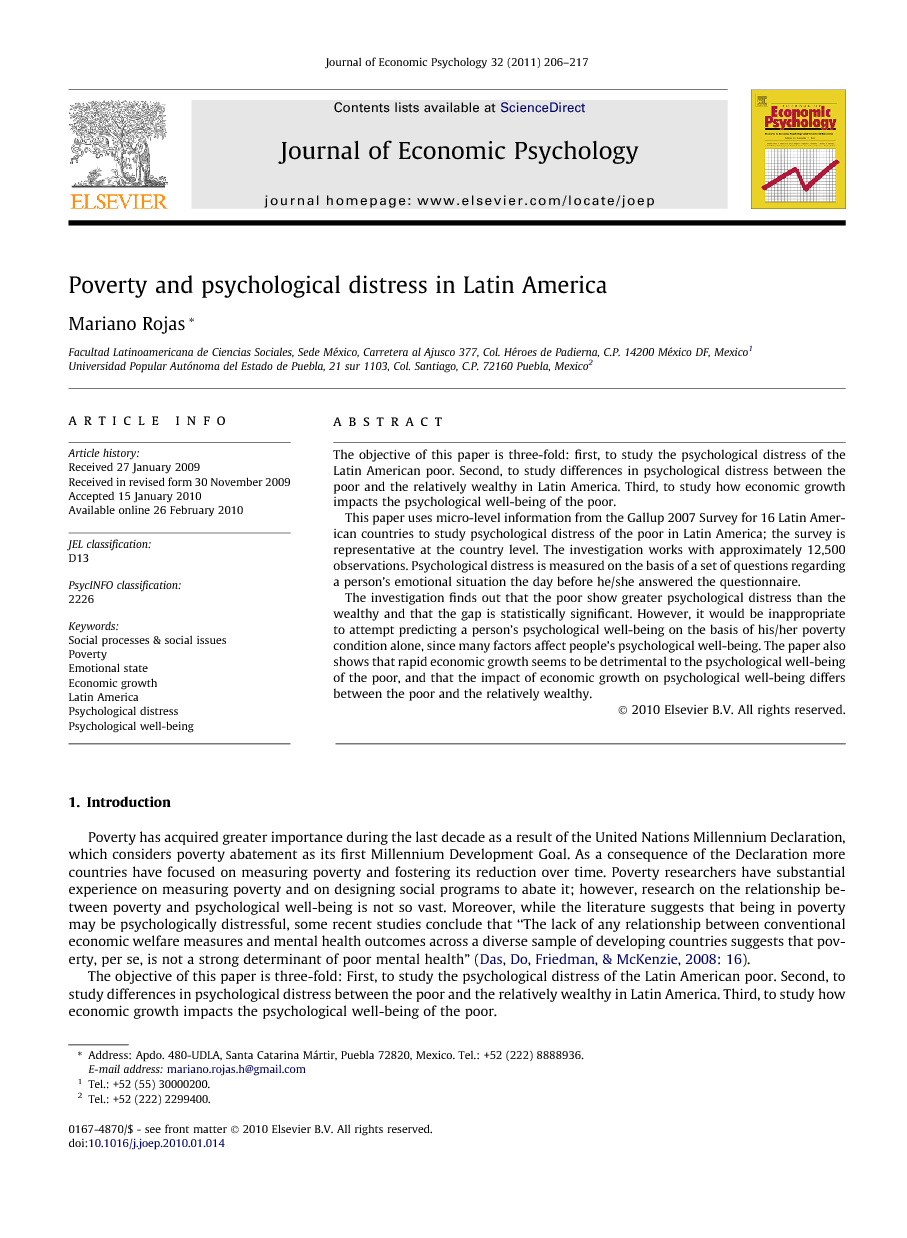ترجمه فارسی عنوان مقاله
ابعاد کنترل روانشناختی والدین: ارتباطات با پرخاشگری فیزیکی و رابطه پیش دبستانی در روسیه
عنوان انگلیسی
Poverty and psychological distress in Latin America
| کد مقاله | سال انتشار | تعداد صفحات مقاله انگلیسی |
|---|---|---|
| 34100 | 2011 | 12 صفحه PDF |
منبع

Publisher : Elsevier - Science Direct (الزویر - ساینس دایرکت)
Journal : Journal of Economic Psychology, Volume 32, Issue 2, March 2011, Pages 206–217
ترجمه کلمات کلیدی
&
کلمات کلیدی انگلیسی
Social processes & social issues;
Poverty;
Emotional state;
Economic growth;
Latin America;
Psychological distress;
Psychological well-being

